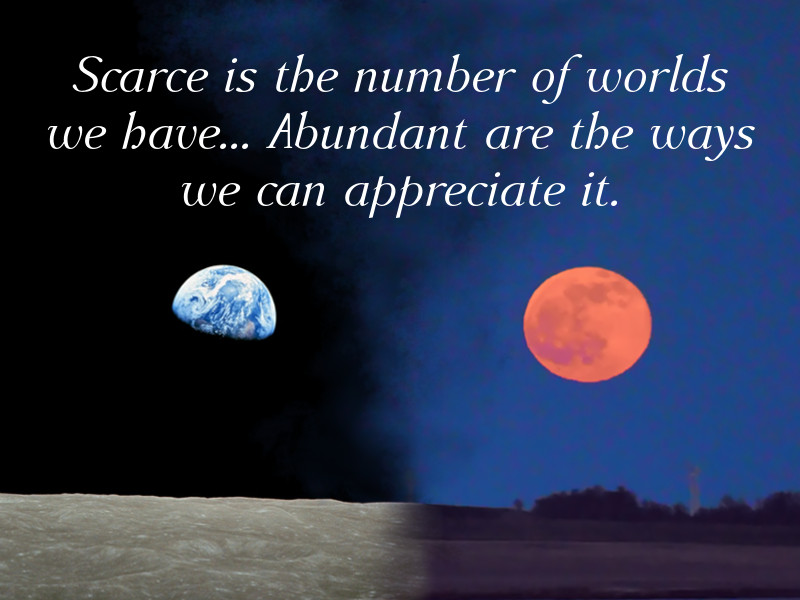
Scarcity & remembering the obvious.
Critiques of the end results of the unidirectional application of modern economics theory can be generally assigned to two schools of thought:
- One wants an alternative economics.
- The other wants an alternative to economics.
The basic assumption of the economics of consumerism is that people are born needy and the means of satisfying them are inherently scarce. This is the premise of the modern marketplace and gains support as national policy due to its ability to increase production activity. This has generated a consumerist system that aims to promote production and consumption of goods, that it can readily itemise and transact in vast quantities, that become the essential quantifier of national success. Unfortunately as more and more aspects of society become systematised to this function it becomes excessive and thus incredibly harmful to our wellbeing and our ecological prospects as a species.
Scarcity is the linchpin economics concept that underpins the consumerist model. Consumerism driven by its embedded success criteria needs to promote scarcities that it can provide for, and the way this invasively moves into cultural life sounds the death knell of culture born from grass roots creativity and handed down traditions.
Because of the assumption that human needs can only be met from scarce resources and not from the abundant, this fuels the relentless expansion of the consumptive economy, and the consequent demise of community.
The only credible antidote to the damage of consumerism is abundance. By abundance I mean that which no matter how much of it is used, it never gets used up. Or more to the point, that which grows the more it is given away.
When put in these terms it is clear that our interpersonal and planetary futures depend not on market share, but on friendship, not on market bonds, but on ties that binds. Not on power or privilege, but on relationships and contribution to others.
This is why the concept of ‘abundant communities’ is so vital to our shared futures. It recognizes the huge reservoir of individual, associational, cultural, economic and ecological capacities we have in every community. Just waiting to be discovered, and productivily connected.
By contrast when well intentioned people from outside communities of place start prescribing what the community needs to be or become, they too, without realizing it, are starting from a scarcity perspective. When as outsiders we seek to create ‘healthy communities’, ‘caring communities’, ‘asset-based communities’; ‘happy communities’, or such like, are we not just Prescribing our version of salvation?
What if instead we started with the question what are local communities already doing which creates that which we think they are missing? How are they health creating, competently parenting, naturally compassionate, etc. ? We might be pleasantly surprised to discover that much of what we think a community needs is already happening below the radar, if we have an abundant lens through which to see it and a willingness to support those assets to be connected.
Cormac Russell
